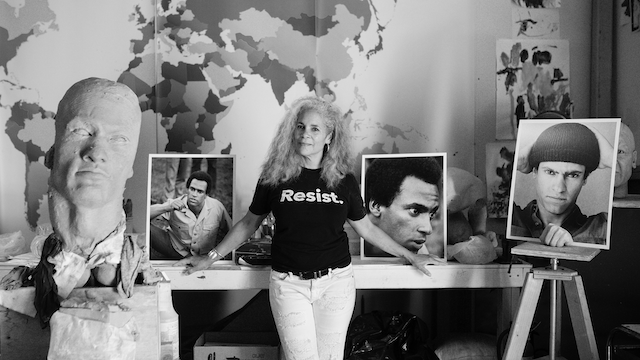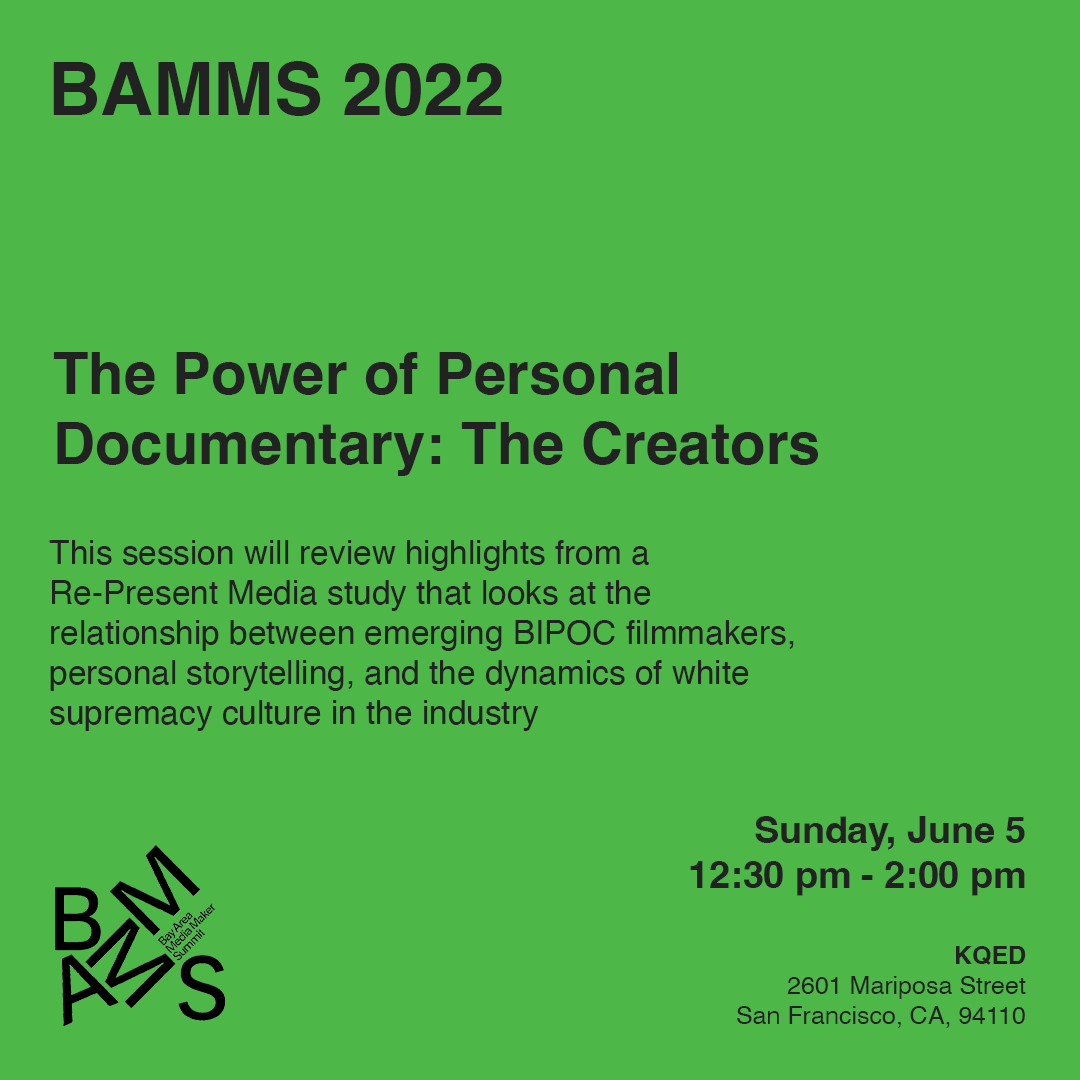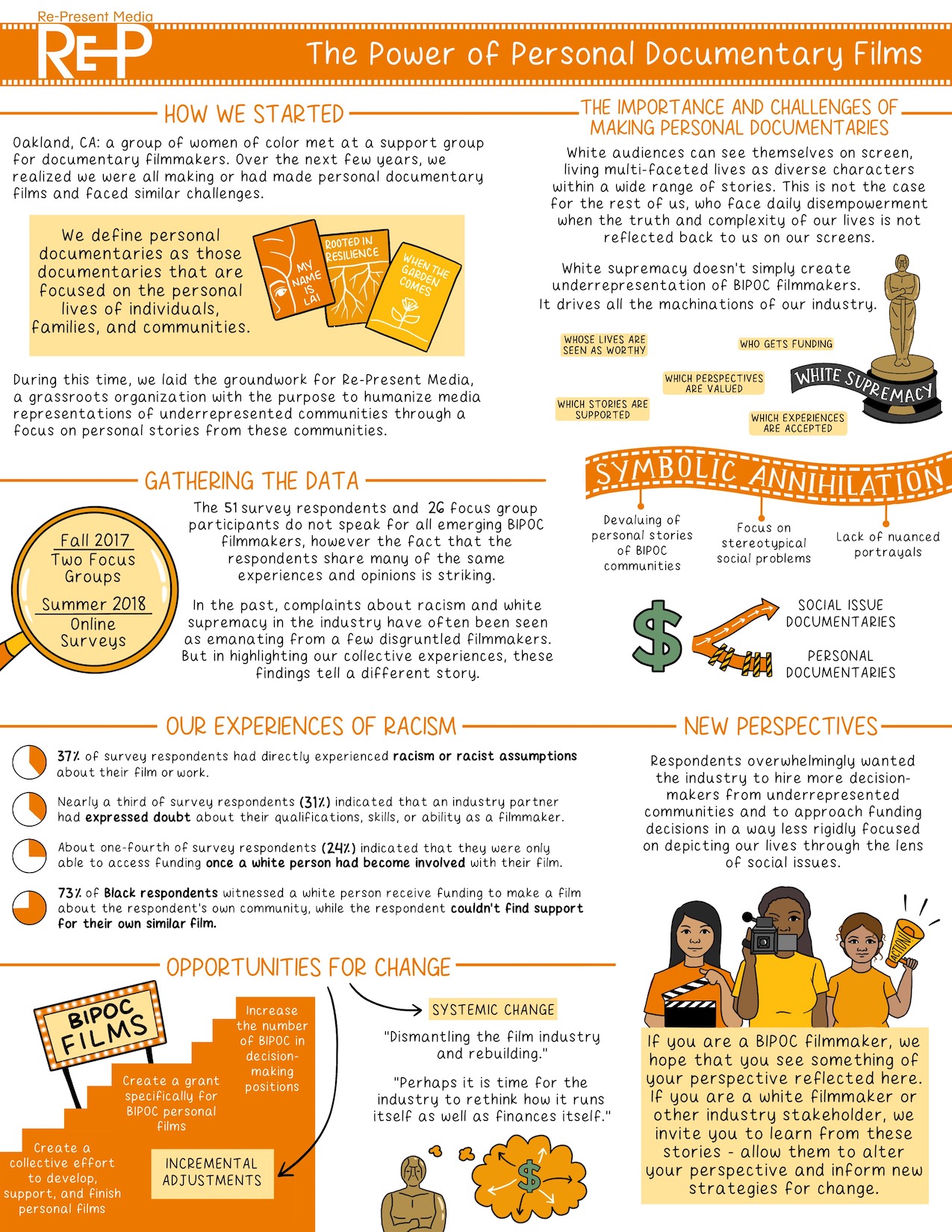
Join us for a launch event for The Power of Personal Documentary Films!
REGISTER FOR EVENT
The Power of Personal Documentary FIlms, published by Re-Present Media, is an article researched over several years to look at the impacts of racism and white supremacy in the industry on emerging BIPOC filmmakers. The article also makes a case for the importance of personal storytelling. Learn more about the findings from this work and engage with other BIPOC industry members in an interactive audience discussion.
Over the last several years, Black, Indigenous, and People of Color (BIPOC) documentary filmmakers have discussed decolonizing documentaries as part of creating more equity in the field. In 2017, Re-Present Media (RPM) decided to take a different angle on the issues faced by BIPOC filmmakers and began gathering information on the impact of racism and white supremacy in the industry, which is summarized in their new article, The Power of Personal Documentary Films. RPM advocates for personal storytelling from underrepresented communities in documentary films and nonfiction media.
Jennifer and Chanda will present an overview of the highlights of this work, which was composed of focus groups and surveys on the experiences of underrepresented filmmakers working on personal stories. Then they will take a deep dive into the context of this work, including their personal stories behind why this work was necessary, the value of qualitative data, the necessity of anonymity for participants, the strategy behind the impact campaign for this work, and how this work can become a seed for ongoing practice towards industry change.
Those who attend will gain an understanding of the importance of personal documentary filmmaking along with the issues surrounding white supremacy culture and its impact on BIPOC filmmakers. Jennifer and Chanda will also provide a preview of the impacts they hope the article will have and the ways in which attendees might continue to engage in the conversation.
The presentation will be followed by an interactive audience discussion that will not be recorded.
REGISTER FOR EVENT










